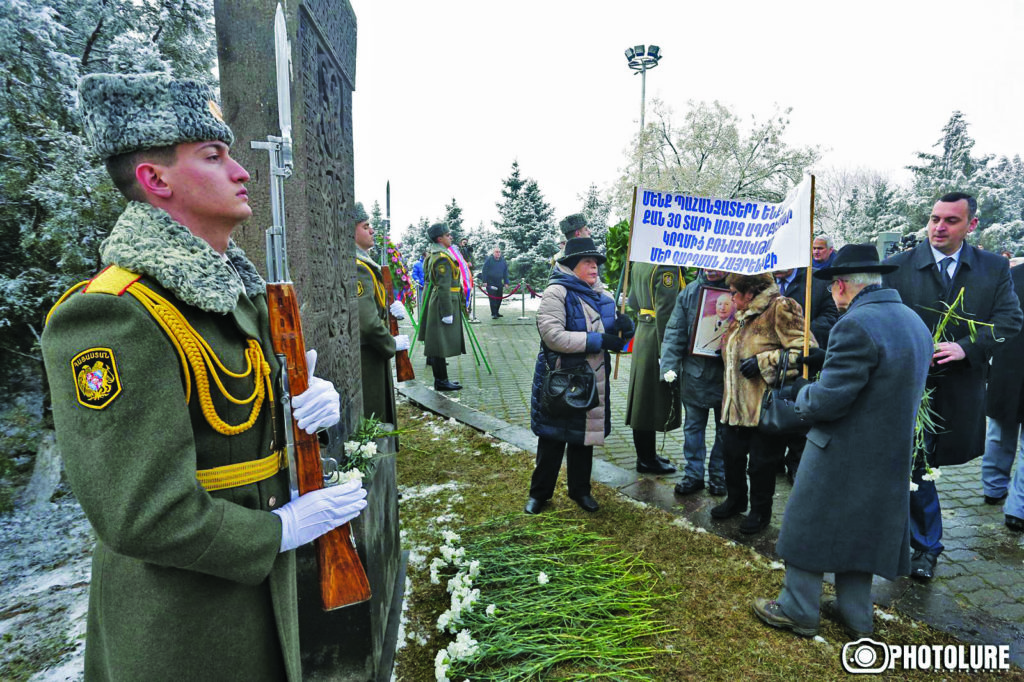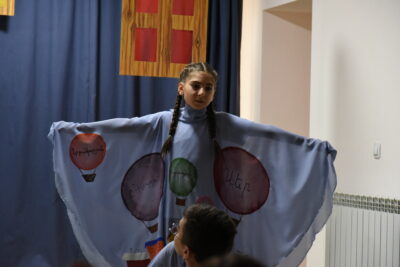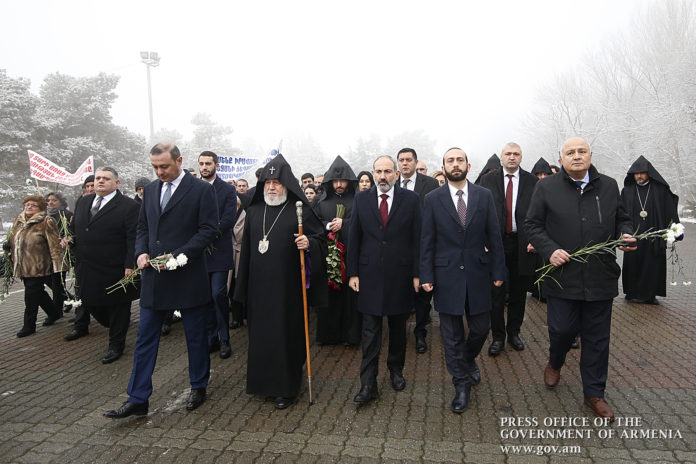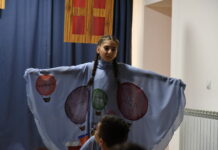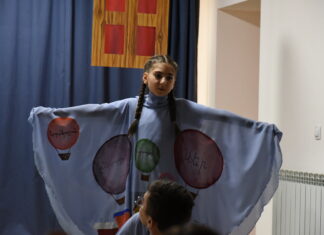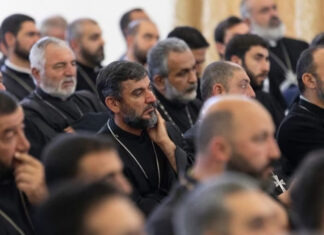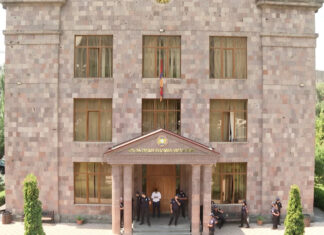YEREVAN (Combined Sources) — Armenian Prime Minister Nikol Pashinyan, National Assembly Speaker Ararat Mirzoyan, Secretary of the Security Council Armen Grigoryan, Catholicos of All Armenians Karekin II, as well as members of parliament visited the Tsitsernakaberd Memorial Complex in Yerevan on Monday, January 13, to pay homage to the victims of the Baku pogrom on the 30th anniversary of the atrocity.
A mass pogrom of Armenian population was committed in Baku from January 13 to 19, 1990, as a culmination of the genocide of the Armenians in Azerbaijan unfolded between 1988 and 1990.
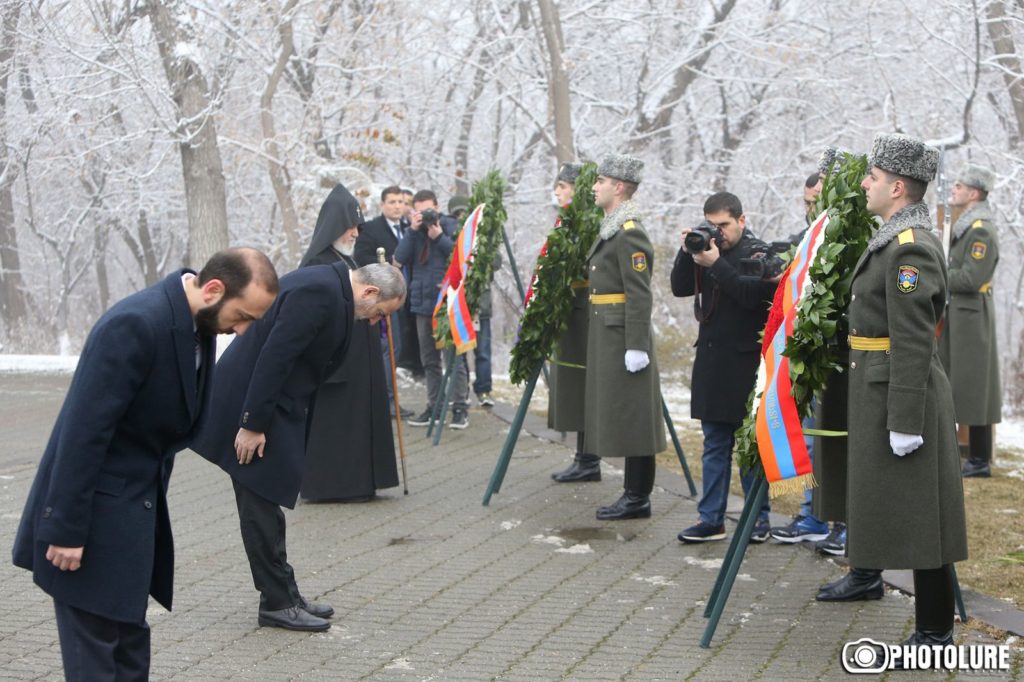
After the Sumgait pogroms (February 26-29, 1988), persecutions, beatings, particularly cruel killings, public mockeries, pogroms of separate flats, seizure of property, forcible expulsions and illegal dismissals of Armenians started in Baku. Only some 35 or 40 thousand Armenians of the community of 250 thousand remained in Baku by January 1990. They mainly included disabled people, old and sick people and the relatives looking after them.
The pogroms took an organized, targeted and mass nature since January 13, 1990. A large amount of evidence exists about the atrocities and killings committed with exceptional cruelty, including gang rapes, burnings of people alive, throwing people out of balconies of higher floors, dismemberments and beheadings.
The exact number of the victims of the Baku pogrom still remains unknown. According to different sources, between 150 and 400 people were murdered, and hundreds were left disabled. The pogroms went on for a week amid a total inaction of the authorities of Azerbaijan and the USSR, as well as the internal troops and the large Baku garrison of the Soviet Army. Those who managed to avoid death were forced into deportation. The Soviet troops were deployed to set order in Baku only on January 20, 1990.
Pashinyan issued a statement in which he said, “In 1990, as a result of the policy of repression and ethnic cleansing started by the Sumgait massacre, only 35-40,000 out of some 250,000 Armenians remained in Baku, mostly elderly and helpless people. Their fate was even more tragic: hundreds were killed, maimed and went missing; tens of thousands became refugees. This was the outcome of the anti-Armenian pogroms that raged in Baku for about a week.
